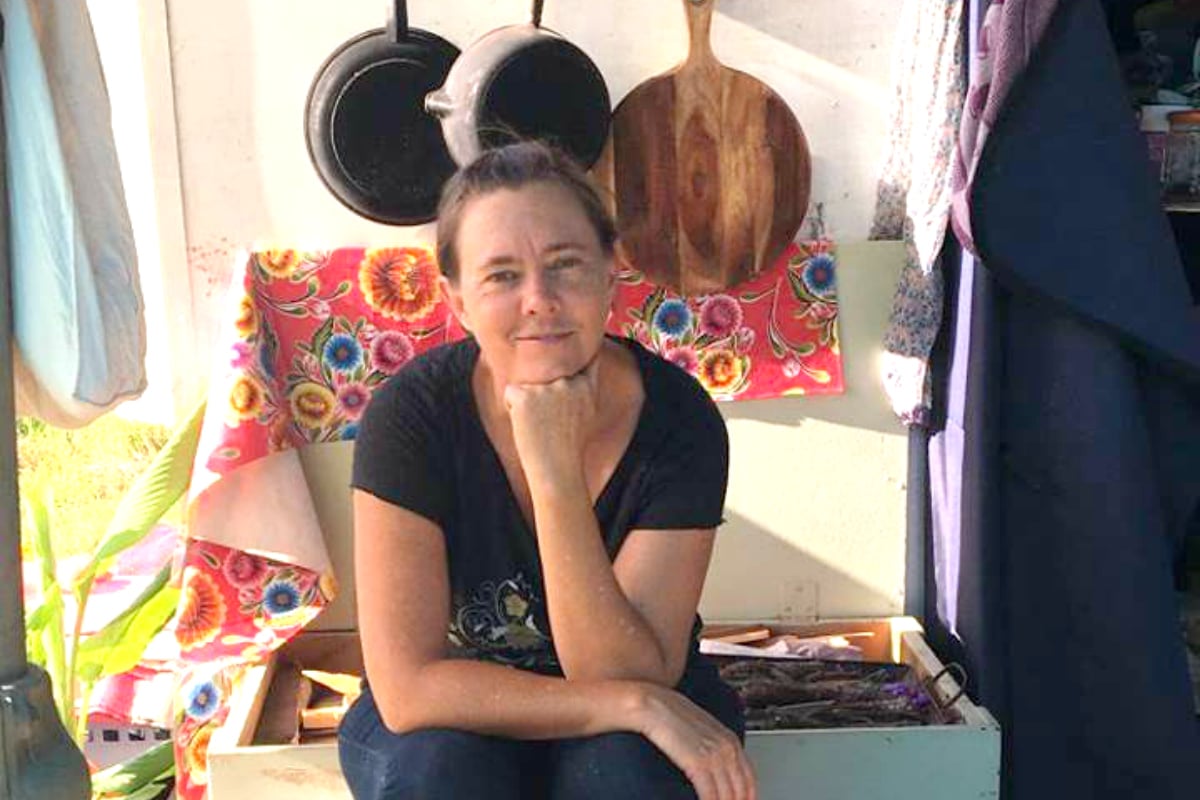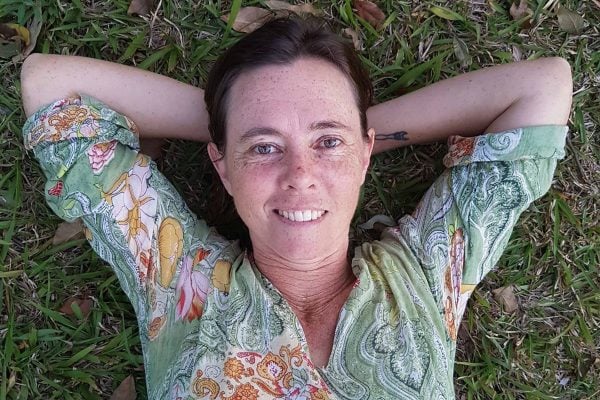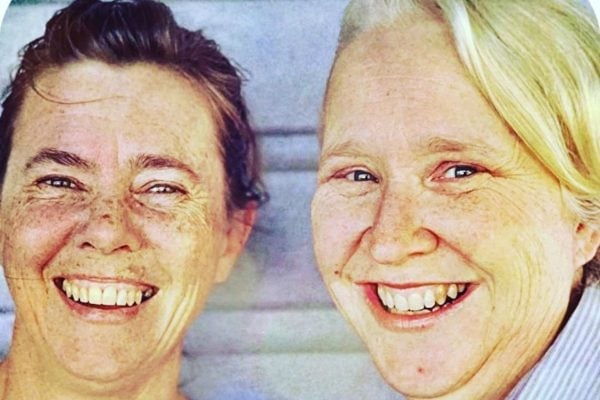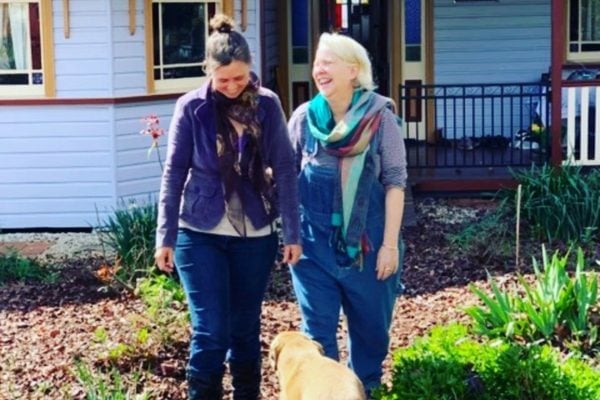
What Jo misses most about earning money, is being able to give coins to people busking in the street.
She doesn’t even have 20 cents to her name. But if she did, she sure would give it to the girl with her guitar, busking in the streets of her local town of Lismore, in northeastern New South Wales.
For five years now, Jo has not earned or spent a single cent. She refuses to participate in our cash economy.
“I don’t have any money that I use. I don’t have a bank account. I don’t get paid for anything,” she tells Mamamia.
Instead, the 51-year-old lives a “great life of giving and receiving and sharing”.































































































